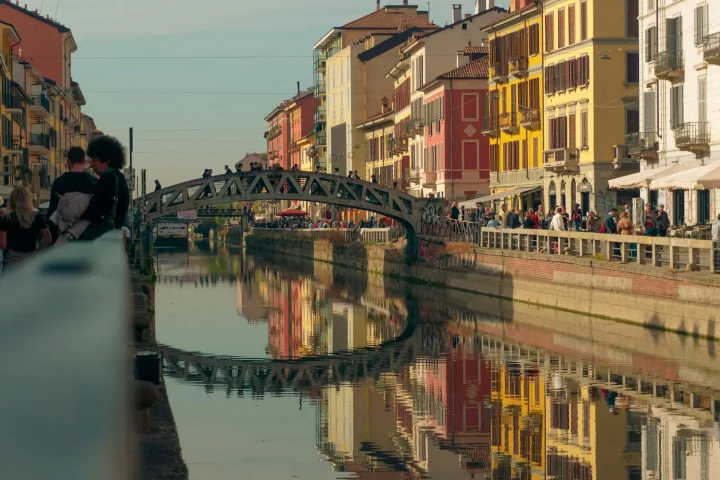Moving to Italy is a dream for many individuals across the globe, drawn by the promise of a better quality of life, the country’s rich cultural heritage, and numerous professional opportunities. Over recent years, there’s been a noticeable increase in interest among residents of the United States regarding Italian citizenship. This fascination is driven by various factors, including the allure of the Italian lifestyle, the benefits of dual citizenship, and the possibility of seamless travel within the European Union.
Advantages of Italian citizenship when moving
One of the primary advantages of obtaining Italian citizenship is the broad array of rights and benefits it confers. With Italian citizenship, individuals gain access to the Italian healthcare system, which is renowned for its high standards and affordability. Public healthcare in Italy is largely free at the point of use, ensuring that citizens receive necessary medical care without the burden of hefty bills.
Additionally, Italian citizens can benefit from low-cost public education, which includes access to some of the world’s oldest and most prestigious universities. It is important to highlight that, even though universities are not free of charge, tuition fees are significantly less expensive for Italian citizens.
Italian citizenship also provides the invaluable benefit of mobility within the European Union. Citizens have the right to live, work, and travel freely among EU member states without the need for visas or additional permits.
This freedom is particularly appealing for those who wish to explore Europe extensively, pursue career opportunities in different countries, or simply enjoy the diverse cultural experiences that the continent has to offer.
Take advantage of specialized assistance to secure your passport for a borderless future.
Practical aspects of moving to Italy
When planning to move to Italy, it’s essential to be well-prepared with the necessary documentation. The most critical documents include a valid passport and an Italian citizenship certificate, or simply an Italian or other EU passport. These documents are indispensable for legal entry into the country and for accessing various services upon arrival.
The costs associated with moving to Italy can vary significantly based on individual circumstances and preferences. Common expenses include international transportation, which can be a substantial outlay depending on the distance and mode of travel chosen.
Temporary housing is another high cost, as finding suitable accommodation upon arrival is very important, and it might take some time to settle inappropriately. It’s also important to consider local administrative fees for services such as residency registration, health-related expenses, and utility connections. While these costs can add up, careful planning and budgeting can help manage the financial aspects of the move.
Common challenges faced by immigrants
Despite the many benefits of moving to Italy, immigrants often encounter several challenges that can complicate the transition. One of the most significant hurdles is navigating the local bureaucracy. The process of obtaining residency permits, registering with local authorities, and complying with various regulations can be time-consuming and complex. Understanding the intricacies of the Italian legal system and dealing with paperwork in a foreign language can be daunting.
Additionally, cultural differences can also present challenges for newcomers. Italy has a distinct culture with unique social norms, traditions, and ways of life that may differ significantly from those in the United States. Immigrants may experience culture shock as they adjust to new customs, communication styles, and daily routines.
However, embracing these differences and making an effort to learn about and respect local practices can facilitate a smoother adaptation process. Building connections with local communities and participating in cultural activities can also help newcomers feel more at home in their new environment.
Italy has welcomed numerous immigrants over the past few years, and major cities like Milan and Rome are now home to many different cultures. If you feel that it might take some time to adjust to local customs, living in these cities could be a good option. The residents are accustomed to newcomers from various backgrounds, so you might feel more welcomed upon arrival. Later, you can decide whether to move to a smaller city or town.
Take advantage of specialized assistance to secure your passport for a borderless future.
How to ease your transition with specialized consultancy
One effective way to mitigate the challenges of moving to Italy is to seek specialized consultancy services. Comprehensive consultancy can provide valuable support in various aspects of the relocation process, from planning and logistics to legal and administrative matters. Consultants with expertise in Italian immigration can offer personalized guidance, ensuring that all necessary paperwork is in order and that the transition is as seamless as possible.
In conclusion, moving to Italy and obtaining Italian citizenship offers numerous benefits, from access to high-quality healthcare and education to freedom of movement within the European Union. While the process of relocating can be complex and challenging, careful planning, thorough preparation, and the assistance of specialized consultancy services can help ensure a successful transition. Ultimately, the long-term advantages of Italian citizenship, combined with the rich cultural experiences and improved quality of life, make Italy an attractive destination for individuals seeking a new chapter in their lives.
Take advantage of specialized assistance to secure your passport for a borderless future.






